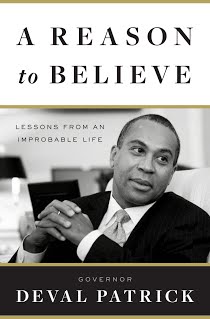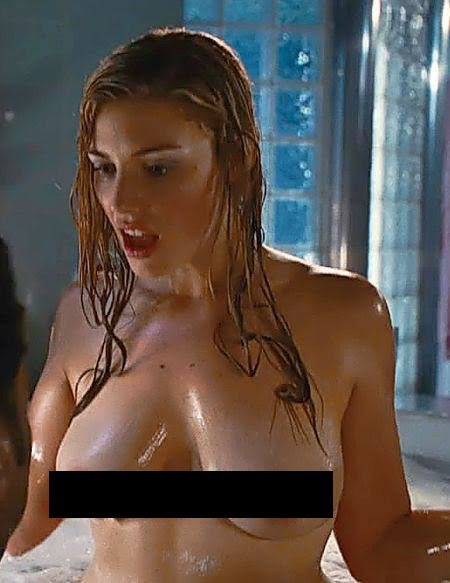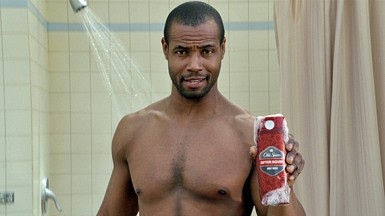Larry Greenberg says: I read that, when you were younger, you received some attention from an organization called A Better Chance. What would you encourage Americans to do to help other at-risk children realize their potential?
Deval Patrick: Well, I think that’s all about investing time in them. I believe children are hungry for the company of adults. At the time I was growing up on the South Side of Chicago, many families were broken, but it was still a community because back then every child was under the jurisdiction of every single adult on the block. If you messed up in front of Mrs. Jones, she would straighten you out, and then call your mother before you arrived home. What I think those adults were trying to get across to us, Kam, was that they had a stake in us. They were trying to teach us that being a member of community involves recognizing the stake that each of us has not only in our own dreams, but in our neighbors’ as well. I’m so grateful to A Better Chance that it will receive a portion of the proceeds of this book.
Deval Patrick
The “A Reason to Believe” Interview
with Kam Williams
Headline: Reflections on Going from the Ghetto to Governor’s Office
Deval Laurdine Patrick was born on July 31, 1956 in Chicago where he and his elder sister, Rhonda, were raised by their mother, Emily “Mae” Wintersmith, in the home of their maternal grandparents after she was abandoned by her husband. Their absentee father, the late Pat Patrick, was a legendary jazz saxophonist who recorded and performed with everybody from Duke Ellington to Miles Davis to Thelonious Monk to Sun Ra.
Deval exhibited enough promise in junior high to land a scholarship to Milton Academy, a prestigious boarding school located in Massachusetts outside Boston. From there, he went on to earn both undergraduate and law degrees at Harvard University.
He subsequently worked with the NAACP Legal Defense Fund and then as an Assistant Attorney General for Civil Rights under President Clinton. He also enjoyed stints as general counsel at Texaco and Coca-Cola before deciding to run for Governor of Massachusetts, a position he has held since 2007. Last fall, he made history by becoming the first African-American in the United States ever to be re-elected as a governor.
Deval and his wife Diane, who is also a lawyer, have a couple of college-age daughters, Sarah and Katherine. Here, he talks about his autobiography, “A Reason to Believe.”
Kam Williams: Hi Governor Patrick, thanks for the interview.
Deval Patrick: You bet. Thank you.
KW: I really enjoyed your autobiography on several different levels. But I should tell you right off the bat that I played in a group with your dad back in the day during my very brief jazz career.
DV: Come on?
KW: It’s true. And I even got to record on an album with him once with the Sound Awareness Ensemble led by Robert Northern, aka Brother Ahh. Your father was a very positive influence on my life.
DP: Oh, wow! I might have guessed that, because he paid a lot of attention to younger musicians.
KW: Absolutely! And not just in terms of music, but as far as diet and nutrition, too. And that was also a pivotal period in my personal development when I took my African name, Kamau.
DP: I remember how my dad was so into herbal solutions and health food well before that stuff became popular.
KW: I hesitated to bring this up, because in your memoir you reflect upon the pain you felt because of being neglected by him for so many years.
DP: I remember once when I was about six, after my parents had split, an occasion when my father was passing through town because he was playing with Count Basie at the Regal Theater on the South Side of Chicago, a famous destination. He picked me up and promised to take me for ice cream after the show. But he had me waiting in the wings, and I just remember being knocked over by the sound which was too much for the ears of a little kid. And I was bored and kept asking, “Is it over yet? Can we go now?” Another time, I was in a smoky club where he was playing with Thelonious Monk, who was probably his favorite person to play with. Even though, back then, I was frequently frustrated as a youngster who just wanted to spend time with his father, I can now appreciate that he was in the company of all these jazz legends and that he was completely dedicated to his art, albeit to the exclusion of everything else.
KW: I was in Boston much of the same time that you were in school there, the late Seventies, a period of virulent racism. I was run out of Fenway Park on Opening Day one year just for being black. I was so scarred by the incredible intolerance I encountered in the city that I left town as soon I got my degree and never looked back. So, it’s amazing to me that you could remain there and think they’d vote for a black man as their Governor?
DP: I was indeed here then, and had an experience sitting in the bleachers at Fenway Park which affected my appreciation of baseball for a long time. And a white friend with me was just as rattled. He didn’t know what to say. But Dr. King was right when he said that the arc of the moral universe is long but it bends towards justice.
KW: Editor/Legist Patricia Turnier, who is French-Canadian, says: When I woke up this morning, I thought about how great is your country and that Dr. Martin Luther King didn’t die in vain. Then, I discover that I have this amazing opportunity to send you questions for Governor Patrick. This is really special. I think that being a teacher is one of the most beautiful professions. Can you tell us how a teacher enriched your life?
DP: I had a sixth-grade teacher, this incredibly self-confident young woman who took the entire class to see the first opera I’d ever seen. She also took us to see “The Sound of Music” and used it as an opportunity to instruct us about the rise of the Nazis. She taught us how to count in German from a phrasebook. She was the first person who stoked my imagination in a way which made me feel like I could be a citizen of the big, broader world. So, I invited her when I graduated from prep school and from Harvard. A great teacher who is full of excitement and love for her students can make all the difference in their lives.
KW: Patricia observes that you became a partner at a Boston law firm when you were 34. She asks: What advice do you have for jurists from visible minorities to break the glass ceiling by becoming partners?
DP: That’s not an easy question. I think it’s absolutely obvious that you have to be prepared to sacrifice and to give it 100%, and then make it clear to everyone around you that you are not indifferent about the outcome of your efforts.
KW: Patricia also asks: Is it part of your administration’s plan to apply Geoffrey Canada’s model for the Harlem Children’s Zone in your state?
DP: I haven’t gone to visit his schools, but the man is obviously a genius who is doing the most interesting things in education. A lot of the innovations we’re trying to implement would look very familiar to him.
KW: Leon Marquis asks: Will you run for the presidency in 2016?
DP: [LOL] No, this is my last gig in elected office, as far as I can project ahead. Governor is the only office I’ve ever run for, and I did so in the first place because I felt that there was a contribution I could make right now in governing for the long term and by leading by values. I ran for a second term to finish the work we started. I’ll finish this out and return to the private sector, which I enjoy and miss in some ways.
KW: Cameron Williams, a recent graduate of the Williston Northampton School in Western, Massachusetts asks: How was your experience as a young African-American male in prep school?
DP: It was like landing on a new planet. Everything from the dress code to the way people spoke to what their home lives were like.
KW: Bostonian Irene Smalls asks: What achievement are you proudest of in your career to date?
DP: I’m proudest of my two daughters, and the handful of other children my wife and I have helped to raise in the sense of living by your values and passing on your values.
KW: Irene asks: To what do you attribute your election and re-election in a state with such a small minority population?
DP: I very much believe in values-based leadership, and that the values that I believe in and try to govern by are transcendent values. They have nothing to do with race or even with political parties. Secondly, I think nothing substitutes for the power of the grassroots by showing them the courtesy of going to them where they are and inviting them to take part in the political process.
KW: Larry Greenberg says: I read that, when you were younger, you received some attention from an organization called A Better Chance. What would you encourage Americans to do to help other at-risk children realize their potential?
DP: Well, I think that’s all about investing time in them. I believe children are hungry for the company of adults. At the time I was growing up on the South Side of Chicago, many families were broken, but it was still a community because back then every child was under the jurisdiction of every single adult on the block. If you messed up in front of Mrs. Jones, she would straighten you out, and then call your mother before you arrived home. What I think those adults were trying to get across to us, Kam, was that they had a stake in us. They were trying to teach us that being a member of community involves recognizing the stake that each of us has not only in our own dreams, but in our neighbors’ as well. I’m so grateful to A Better Chance that it will receive a portion of the proceeds of this book.

KW: Harriet Pakula Teweles asks: What has been your most important achievement as governor and what’s still on your agenda that you feel most needs to be addressed before you leave office?
DP: Improving the quality of the schools and their ability to reach all the children who were being left behind, kids with special needs… poor kids… kids who speak English as a second language. That’s both my biggest achievement and my unfinished work, because I know both as a governor and from my own life just how transformative a great education can be.
KW: Harriet says: Your father refused to sign your application to the Milton Academy. Does one lose his or her African-American “identity” by attending an exclusive, predominantly-white prep school?
DP: My father’s biggest worry was that I would lose my black identity at a place like Milton Academy. But I’ve learned over the years that identity has a whole lot less to do with location or other people’s expectations than with your own sense of self and self-confidence.
KW: Harriet also asks: Did you and your dad ever reconcile?
DP: Fortunately, yes, and I discuss it at length in the book.
KW: Tracy Ertl asks: What do you think of Supreme Court Justice Clarence Thomas’ ex-girlfriend Judge Lillian McEwen’s new autobiography which belatedly vindicates Anita Hill?
DP: I’m ashamed to have to admit that I haven’t read it yet. But I’ve known Anita for years, from even before the Supreme Court confirmation hearings. She’s a person of total integrity.
KW: Is there any question no one ever asks you, that you wish someone would?
DP: [Laughs] No. You know what Kam? I feel sort of questioned out.
KW: What was the hardest subject to talk about in the book, your estrangement from your father, your wife’s battle with depression, or something else?
DP: I think it was writing about Diane, which of course I wouldn’t have done without her permission. The beauty of Diane’s triumph over depression is that in going public about it, she saved a lot of lives. She gets mailing confirming that daily.
KW: The Tasha Smith question: Are you ever afraid?
DP: Oh yeah.
KW: The Columbus Short question: Are you happy?
DP: I am joyful, every day.
KW: The Teri Emerson question: When was the last time you had a good laugh?
DP: [Chuckles] This afternoon at lunch. It was great.
KW: What is your guiltiest pleasure?
DP: Dark chocolate, around this time, late in the afternoon.
KW: The bookworm Troy Johnson question: What was the last book you read?
DP: I am reading “The Warmth of Other Suns.” It’s gorgeous. It discusses all my old neighbors in Chicago. http://www.amazon.com/exec/obidos/ASIN/0679444327/ref=nosim/thslfofire-20
KW: The music maven Heather Covington question: What are you listening to on your iPod?
DP: You have to forgive me. It’s mostly jazz classics. And also a lot of John Legend.
KW: What is your favorite dish to cook?
DP: I like it all. It depends on the season.
KW: The Uduak Oduok question: Who is your favorite clothes designer?
DP: I can’t help you with that. I’m not much of a clothes horse.
KW: When you look in the mirror, what do you see?
DP: you know who I’m looking for? My grandfather Poppy, who was one of the most dignified and kind people I’ve ever known.
KW: If you could have one wish instantly granted, what would that be for?
DP: Can I have two. I always want to be fifteen pounds lighter. And I’d also like enough money and time to guarantee that the Commonwealth of Massachusetts will be stronger for another generation.
KW: Do you ever wish you could have your anonymity back?
DP: Sure, but one great thing about being a black man is that if you put on a hat, you can move around unnoticed.
KW: The Ling-Ju Yen question: What is your earliest childhood memory?
DP: Sitting at the kitchen table at the age of three when my father poured a glass of milk on my sister’s head.
KW: What has been the biggest obstacle you have had to overcome?
DP: My own impatience.
KW: The Flex Alexander question: How do you get through the tough times?
DP: Through prayer, taking time to reflect, and by staying busy.
KW: The Rudy Lewis question: Who’s at the top of your hero list?
DP: Nelson Mandela tied with Martin Luther King.
KW: What advice do you have for anyone who wants to follow in your footsteps?
DP: Persevere! Never, ever, ever give up!
KW: The Tavis Smiley question: How do you want to be remembered?
DP: It’s way too soon for that. I’ve got another fifty years in me, I hope.
KW: Thanks again for the time, Governor, and best of luck with the book and the balance of your second term in office.
DP: Thank you, Kam. This has been great.
To order a copy of A Reason to Believe, visit:
http://www.amazon.com/exec/obidos/ASIN/0767931122/ref=nosim/thslfofire-20




